Experiences of a travelling researcher – my 5 years spent visiting Indonesia
“Do you have Australian money?” the police officer asked after he pulled me over on the motorbike I was loaned to get around the island.
“No, just Indonesian currency” I replied.
“Oh there’s going to be trouble then because you also don’t have an Indonesian license” was the officer’s response.
“No, I don’t think so. See this bike is purchased with project funds, and registered under the name of a senior researcher and former head of the Assessment Institute for Agricultural Technology, whose office is just up the road. Would you like to speak to him?”
“Oh ok. Please take your helmet off then” he said, while calling over one of his fellow workmates and handing him his mobile phone.
“What for?” I quizzed him.
“To take a selfie with an Aussie motorbike rider for my Facebook!”
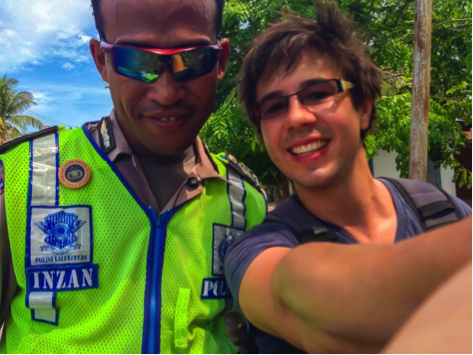
Photo 1: After realising I wasn’t a push over, the police officer that pulled me over then requested a selfie together
This is just one of several interesting interactions I’ve had with the local law enforcement officers while travelling around Indonesia on motorbike, which I still find is one of the best ways to get around the islands.
Working in country for the project (LPS/2008/054) “Improving smallholder cattle fattening systems based on Forage Tree Legume (FTL) diets in Eastern Indonesia and Northern Australia” has at times been challenging but also an incredibly rewarding experience. When I started the role in 2011 I was a young naïve traveller, easily overwhelmed by the initial culture shock while travelling through rural Indonesia, but now I look forward to every moment I get to spend there. Throughout the 5-year project I have visited almost a dozen times and spent more than a year in total working on the islands of Lombok, Sumbawa, Sumba and West Timor, and have become quite familiar and comfortable wherever I may find myself.
My time over there has certainly been unique. Early trips were spent collecting urine, faeces and rumen fluid samples from bulls, goats and buffalo, trekking to many remote locations to chase down animals of interest. Waiting for a buffalo to urinate, using a bull-tickler stick to try and encourage a few drops out can be quite tedious, but it beats having a cow cough its stomach contents all over you! Help is always easy to find in the villages and thankfully no one is too afraid to get their hands dirty. This was for the purposes of understanding how local animals are processing the leucaena toxin DHP and has led to many new findings and insights.
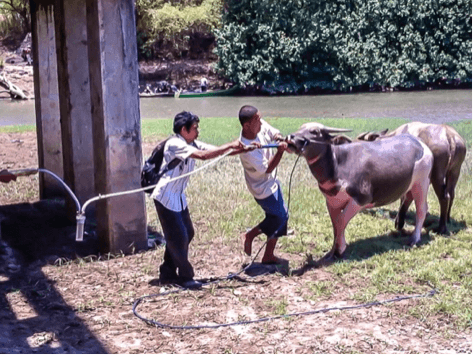
Photo 2: Collecting rumen fluid from a buffalo using a hand operated vacuum pump in Sumba
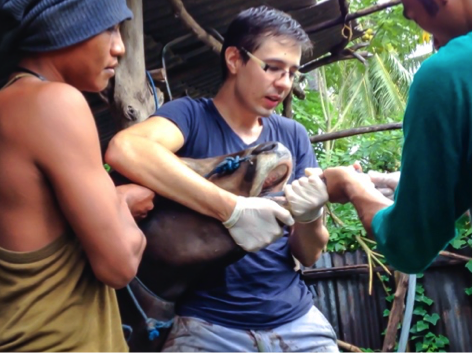
Photo 3: Collecting rumen fluid from an obliging bull in Sumbawa
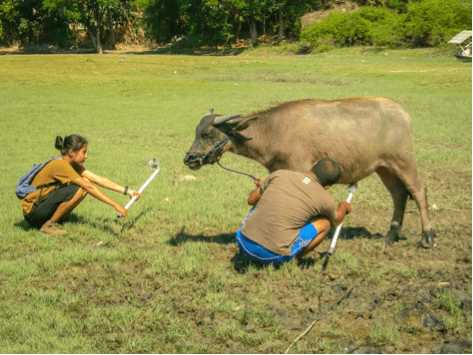
Photo 4: Patiently waiting to collect urine from a buffalo in Sumba
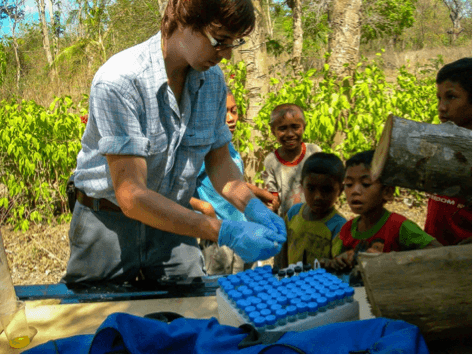
Photo 5:The local village kids were always interested to watch what an Aussie scientist does to all those collected urine samples
On other visits I would travel through the islands, observing the progress of the many villages we are working in and it is always a pleasure seeing first hand the great work that the team of 8 young Field Researchers (FRs) have accomplished.
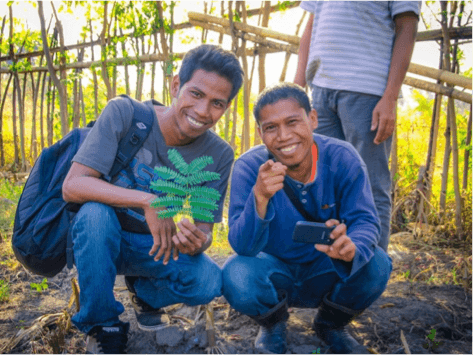
Photo 6: Two of the FRs inspecting a new leucaena plantation
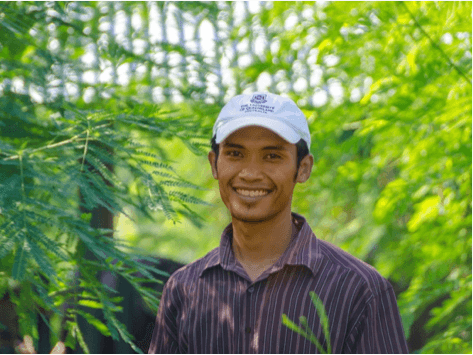
Photo 7: One of the most successful FRs standing proudly in front of a bull-fattening shed, surrounded by healthy leucaena
These individuals have grown from fresh new grads into respected, knowledgeable experts in bull fattening with FTL and the responsibility for encouraging over 1500 individual farmers to improve their practices by adopting FTL feeding. I have had the pleasure of working with and getting to know and become friends with each of them during my time there.
It is also a pleasure to see the difference in the farmers’ lives when I visit each year, noticing how much their homes, vehicles, and livelihoods have improved since they started with the project. Country hospitality is always extended upon arrival with glasses of super-sweet tea and black coffee of soup-like consistency passed around, which you can’t refuse. As a latte-sipping coffee snob from the city I quickly had to adapt in order to get my hourly daily caffeine fix. Like many of the culinary novelties I’ve experienced (fruits that I can’t even pronounce and meals with enough chilli to burn your stomach lining clean off), while daunting at first, they are now favourites of mine.
Thankfully Bahasa Indonesia is relatively easy to pick up as having some language skills also made a huge difference to my time there. While I wasn’t always fluent, it did not matter to the farmers who would always appreciate a foreigner’s efforts to engage deeper with them. The ones that know me well now welcome me back with comments such as either “you’ve gotten fat” or “you’re more handsome” – they are not afraid to speak their mind. Not only do the farmers remember me but the kids and even their dogs will come running over to give a warm welcome.
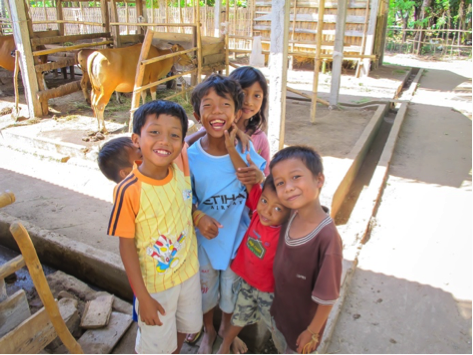
Photo 8: Smiling kids helping their parents feed their cattle
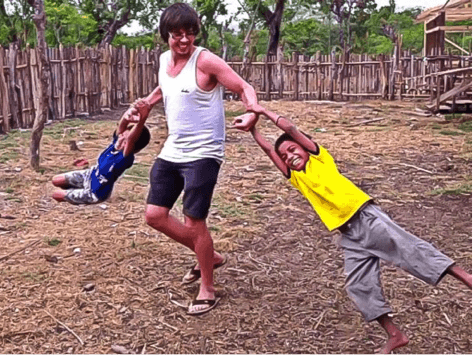
Photo 9: Playing with the local kids in between sample collections
My time working as an agricultural researcher in Indonesia has been a wonderful opportunity to be a part of a successful project with great partners and also full of many soul-enriching experiences I will treasure for life. To anyone interested in spending time in the beautiful islands of Indonesia, I have the following tips:
- Embrace where you are and make the most of every situation
- Some basic language skills will transform your experience while there
- Deodorant and hand sanitiser are your friend
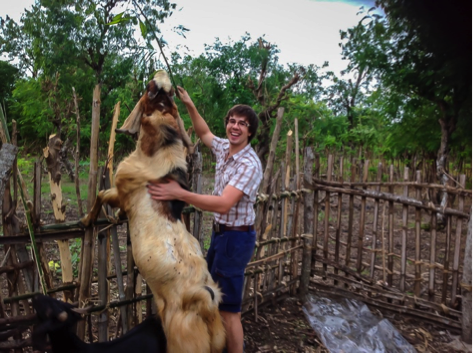
Photo 10: Feeding a hungry goat fresh leucaena


